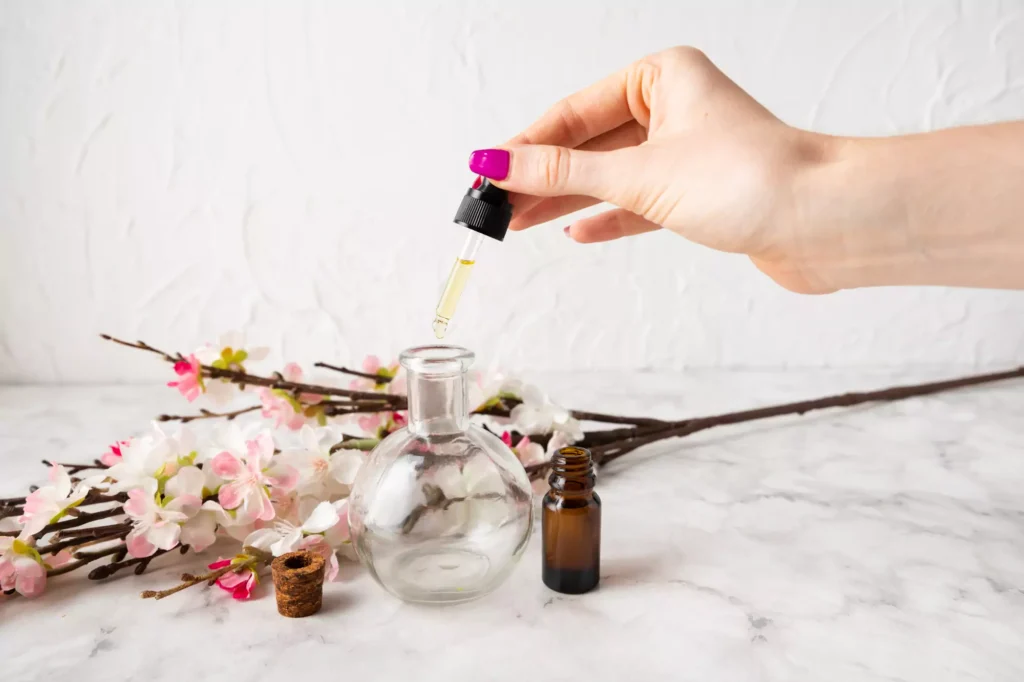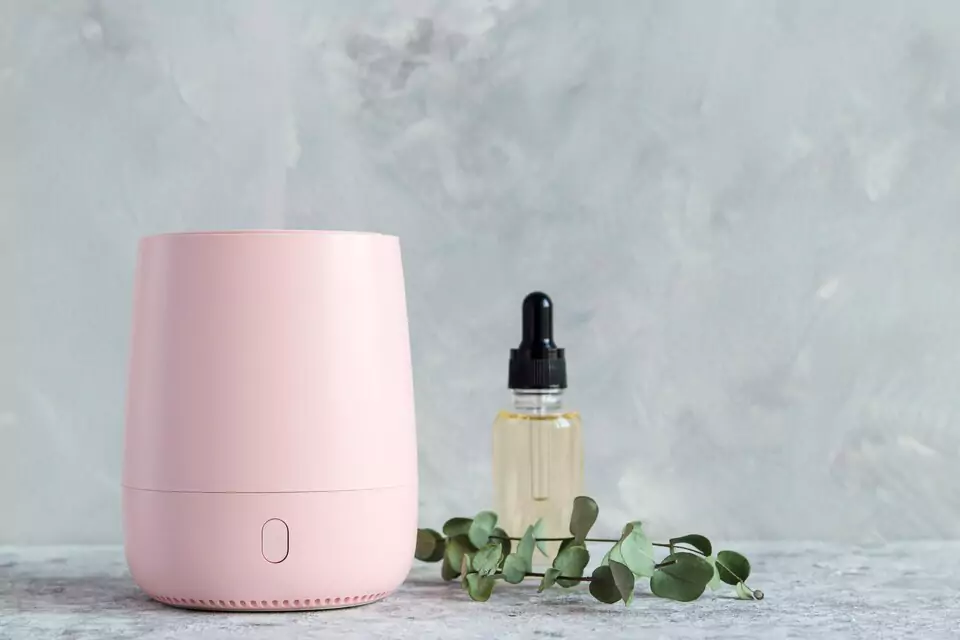Look, I get it. That 2 PM brain fog is hitting hard, your third cup of coffee isn’t cutting it anymore, and you’ve got approximately 57 unread emails judging you from your inbox. So when your coworker mentions that fancy essential oil diffuser that supposedly helps her concentrate, you’re this close to hitting “buy now” faster than you can say “overnight shipping.”
But hold up. Before you drop $50 on a tiny bottle of peppermint oil that promises to transform you into a productivity superhuman, let’s talk about what these plant extracts can (and can’t) actually do for your focus.
I’ll be straight with you – I was skeptical about essential oils until about three years ago when I found myself desperate for alternatives to my unhealthy coffee-every-hour habit during grad school finals. After some research (and a few impulse purchases I regret), I learned that while essential oils aren’t magic focus potions, they can be surprisingly effective tools for concentration when used correctly.
This guide cuts through the marketing hype and MLM sales pitches to give you the real deal on essential oils for focus – which ones actually work, how to use them effectively, and what the science really says.
The Science Behind Aromatherapy and Cognitive Function
Let’s start with how this stuff actually works. When you inhale essential oils, those aromatic molecules take a direct route to your brain’s limbic system – the emotional control center that influences things like mood, memory, and (you guessed it) concentration.
This isn’t just wellness influencer talk. A 2021 review in the journal Frontiers in Neuroscience found that certain essential oils can indeed affect cognitive performance, though the mechanisms aren’t fully understood yet. The main theory is that specific compounds in these oils interact with neurotransmitters that regulate alertness and attention.
That said, no essential oil is going to turn you into Bradley Cooper in “Limitless.” Many studies are small-scale, and there’s a huge variance in how individuals respond to different scents. Remember my roommate who swore by eucalyptus for studying? It gave me a headache so bad I couldn’t read a paragraph. Your mileage may vary, as they say.
Top 5 Essential Oils Proven to Boost Concentration
After testing dozens of oils and blends (my bathroom cabinet looked like a small aromatherapy shop at one point), I’ve narrowed down the oils that have the most scientific backing for focus and concentration:
1. Rosemary Essential Oil for Concentration

If I could only recommend one essential oil for mental clarity, it would be rosemary. This isn’t just personal preference – multiple studies have shown that rosemary can improve memory and cognitive processing speed.
Researchers at Northumbria University found that participants in a rosemary-scented room performed better on memory tasks than those in an unscented room. The active compound responsible for this effect is 1,8-cineole, which appears to inhibit enzymes that break down certain neurotransmitters.
I keep a small bottle of rosemary oil at my desk for days when I need sustained focus – particularly for analytical tasks or anything requiring careful attention to detail. Just a couple drops in my diffuser seems to help my brain shift into “deep work” mode within about 15 minutes.
How to use it: Try diffusing 3-5 drops during study sessions or detailed work. For a quick focus boost, put a drop on a tissue and take several deep inhalations.
What to look for: Cold-pressed rosemary oil with a high 1,8-cineole content. Plant Therapy and Rocky Mountain Oils both offer good options.
2. Peppermint Oil for Focus
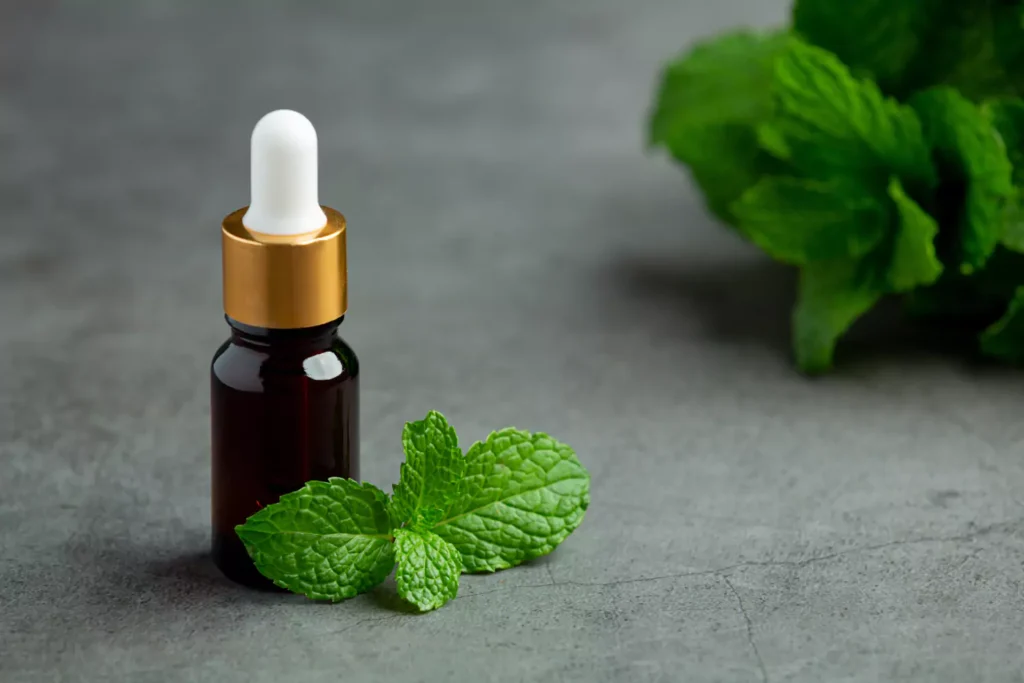
Peppermint is my go-to for that mid-afternoon slump when my brain feels like it’s running on fumes. There’s something about that crisp, cooling scent that cuts through mental fatigue like nothing else.
A study published in the International Journal of Neuroscience found that peppermint oil enhanced alertness, memory, and processing speeds in test subjects. The menthol in peppermint seems to stimulate the hippocampus, an area of the brain involved in mental clarity and attention.
I discovered peppermint’s effects accidentally during a road trip when I was struggling to stay alert. My friend offered me a sniff of her peppermint oil, and within minutes, I felt noticeably more awake and focused on the road.
How to use it: Diffuse 2-3 drops when you need immediate focus. For on-the-go benefits, a personal inhaler works wonders. Just don’t overdo it – peppermint is potent, and too much can be distracting.
What to look for: Look for steam-distilled peppermint oil. NOW Foods offers an affordable option that works well.
3. Lemon Essential Oil for Mental Clarity
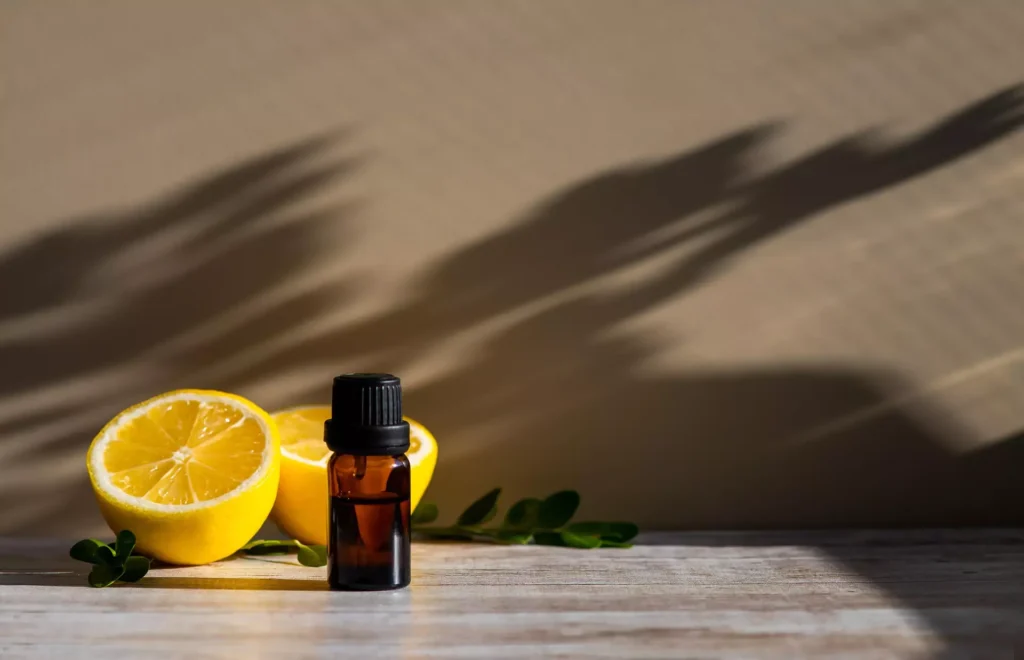
On days when I’m feeling scattered and can’t seem to organize my thoughts, lemon oil is my secret weapon. Its bright, clean scent seems to cut through the mental clutter and help me prioritize.
A Japanese study found that typists made 54% fewer errors when working in an area scented with lemon. The citral compound in lemon oil appears to stimulate the production of dopamine and serotonin, neurotransmitters that affect focus and mood.
I was initially using lemon oil mainly for cleaning (it makes an amazing natural all-purpose cleaner), but noticed I seemed to work better in my freshly-cleaned office. Once I connected the dots, I started using it intentionally for focus.
How to use it: 3-5 drops in a diffuser works great for creative tasks. For a quick refresh, add a drop to a damp washcloth and wipe down your desk.
What to look for: Cold-pressed lemon oil for the highest quality (though it will make you photosensitive if applied topically). Aura Cacia offers a good, affordable option.
4. Frankincense Focus Benefits
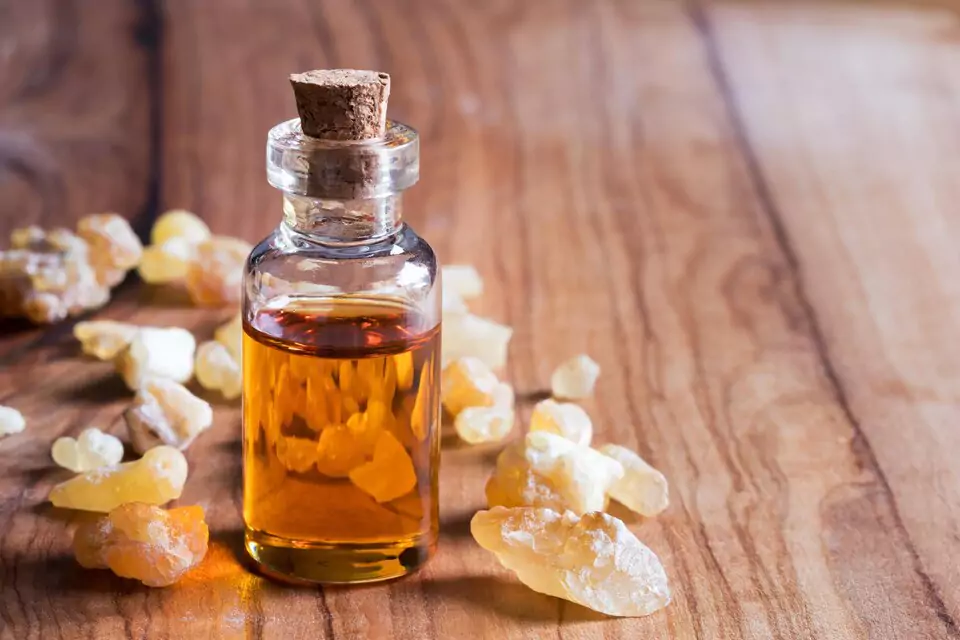
Frankincense is like the sophisticated older cousin of the essential oil world – subtle, complex, and surprisingly effective. While it doesn’t hit you with an immediate brain boost like peppermint, I find it creates a calm, clear mental state perfect for tasks requiring sustained attention.
Research published in the FASEB Journal suggests that frankincense contains compounds that activate TRPV3 channels in the brain, which may help regulate emotional responses and improve focus. Historically, it’s been used in meditation practices specifically for its ability to quiet mental chatter.
I discovered frankincense during a particularly stressful project deadline when my anxiety was making it impossible to focus. A massage therapist friend suggested I try it, and I was amazed at how it helped me feel both relaxed AND mentally sharp – a rare combination.
How to use it: 2-4 drops in an evening diffuser session, or blend with rosemary (2:1 ratio) for deep work sessions.
What to look for: Boswellia carterii or Boswellia serrata varieties from sustainable sources. Edens Garden offers a good option.
5. Basil Oil for Mental Alertness
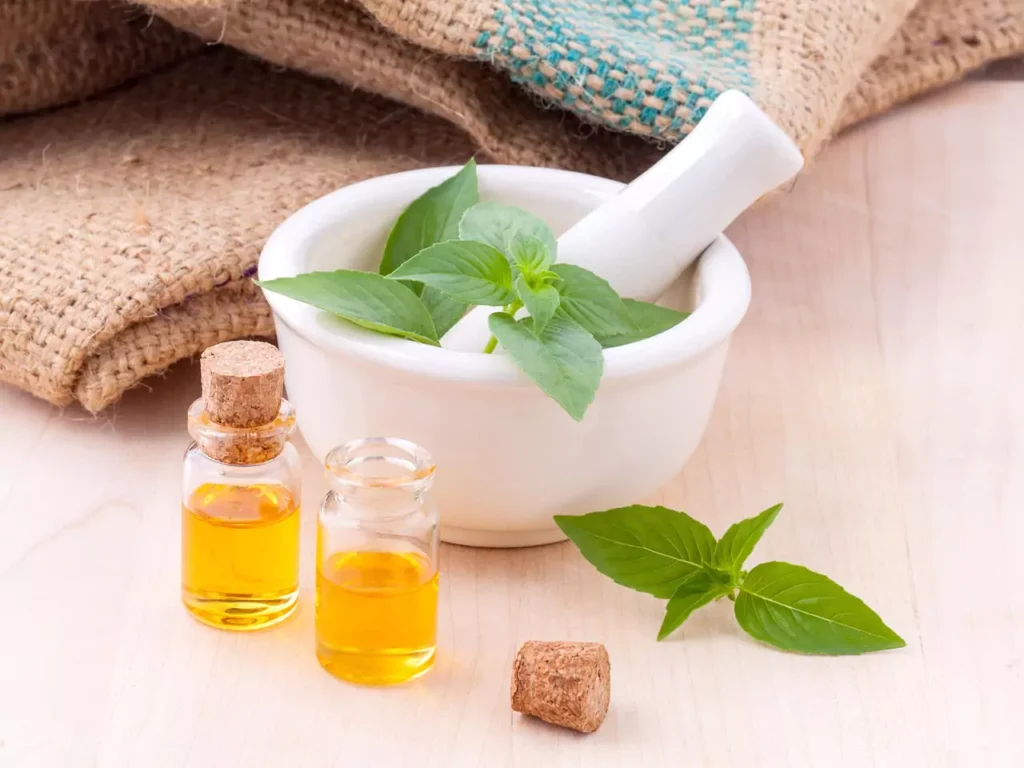
Basil is probably the most underrated focus oil, in my experience. When I first tried it, I was surprised by its powerful effect on mental clarity – it was like someone turned on a light in a dim room.
A study in the journal Evidence-Based Complementary and Alternative Medicine found that holy basil reduced anxiety and associated stress while improving cognitive function. The eugenol in basil oil appears to increase blood flow to the brain and reduce inflammation, which may explain its focus-enhancing effects.
I stumbled upon basil oil after growing tired of my usual peppermint routine and wanting something different. Now it’s my secret weapon for creative problem-solving sessions when I need to think outside the box.
How to use it: Just 1-2 drops in a diffuser (it’s potent!) or create a 1% dilution in a carrier oil for a focus-boosting desk-side massage.
What to look for: Sweet basil (Ocimum basilicum) for mental clarity, or holy basil (Ocimum sanctum) for focus with stress relief. Young Living and doTERRA both carry quality basil oils, though they are on the pricier side.
Essential Oil Blends for Different Focus Challenges
While single oils are great, I’ve found that the right blends can target specific focus issues more effectively. Here are a few combinations I’ve perfected through much trial and error:
Brain Fog Buster Blend
When you’re feeling mentally fuzzy and can’t seem to get your thoughts in order:
- 3 drops Rosemary
- 2 drops Peppermint
- 1 drop Basil
I discovered this combination accidentally when I was diffusing rosemary and peppermint and decided to add basil on a whim. The mental clarity was remarkable – I ended up finishing a report I’d been stuck on for days.
Deadline Destroyer Blend
For when you need intense focus to power through important work:
- 3 drops Lemon
- 2 drops Frankincense
- 1 drop Rosemary
This is my go-to for writing projects with tight deadlines. I came up with it during my thesis crunch time, and it helped me maintain focus for hours without the jittery side effects of too much caffeine.
Digital Distraction Shield
When you keep checking your phone every five minutes instead of working:
- 2 drops Peppermint
- 2 drops Lemon
- 1 drop Frankincense
I developed this blend specifically to help with the constant temptation to check social media. The peppermint provides immediate attention, the lemon helps with mental clarity, and the frankincense helps maintain sustained focus. It’s not foolproof (nothing is against the dopamine hit of notifications), but it definitely helps.
Application Methods for Maximum Cognitive Benefits
The way you use essential oils drastically affects their impact on focus. Here’s what I’ve learned works best:
Diffusion: Getting the Most Focus Benefits
After years of experimentation, I’ve found that diffusion is the most effective method for cognitive benefits. The continuous low-level exposure seems to work better than intense short bursts for sustained focus.
For focus and concentration, nebulizing diffusers (the ones without water) generally outperform ultrasonic models since they release a higher concentration of oil. However, they use oil much faster, which gets expensive quickly. I save my nebulizer for important deadlines and use an ultrasonic for everyday work.
Pro tip: Don’t run your diffuser continuously all day. Your brain will quickly become desensitized to the scent (a phenomenon called olfactory fatigue). Instead, try 30-45 minutes on, then at least 30 minutes off. I learned this the hard way after wasting a lot of expensive oil with diminishing returns.
Direct Inhalation for Immediate Focus
For an immediate focus boost, nothing beats direct inhalation. I keep a personal inhaler (basically a small tube with an absorbent wick) filled with my peppermint/rosemary blend for focus emergencies.
You can also place a drop of oil on a tissue or cotton ball and take several deep breaths. Just don’t hold it directly against your nose – hold it a few inches away to avoid irritation.
I discovered the power of direct inhalation during an important meeting when I was struggling to stay engaged. A discreet sniff from my inhaler helped me refocus immediately without disrupting others.
Topical Application: What Actually Works
While diffusion and inhalation are my go-to methods, topical application can be effective in certain situations. The key is proper dilution – essential oils should NEVER be applied directly to the skin.
For a focus-boosting massage oil, mix 3 drops of rosemary and 2 drops of peppermint with 1 tablespoon of carrier oil (jojoba works great). Apply to your temples, back of neck, or wrists. This is my preferred method during travel when diffusion isn’t practical.
Important safety note: Keep oils away from your eyes, and always do a patch test first, as some people may have skin sensitivities. I learned this lesson painfully when I tried a new blend without testing and ended up with an itchy red patch on my wrist all day.
Comparing Top Essential Oil Brands for Focus
After trying numerous brands over the years, I’ve found significant differences in quality and effectiveness. Here’s my honest assessment of the major players:
DoTERRA vs. Young Living: Are They Worth the Price?
Both companies make quality oils, but their MLM structure means you’re paying a premium. DoTERRA’s InTune focus blend is effective but costs around $46 for 10ml. Young Living’s Brain Power runs about the same.
Are they worth it? In my experience, their single oils are comparable to other high-quality brands at lower prices. However, their proprietary blends are harder to duplicate and are sometimes worth the splurge for convenience.
I used DoTERRA exclusively when I first started because my friend sold them, but eventually realized I was spending too much. I still use their InTune blend occasionally because I haven’t found a perfect dupe, but I’ve switched to other brands for single oils.
Budget-Friendly Options That Actually Work
After much experimentation, I’ve found several affordable brands that don’t compromise on quality:
Plant Therapy offers excellent oils at about half the price of MLM brands. Their “Brain Aid” synergy blend ($9.95 for 10ml) is my go-to affordable alternative to pricier focus blends.
NOW Foods essential oils are widely available and surprisingly good quality for the price. Their peppermint oil ($10.99 for 30ml) is one of my staples.
Edens Garden provides quality comparable to the big MLM companies at much better prices. Their “Focus, Focus, Focus” blend ($9.95 for 10ml) works remarkably well.
I switched to these brands gradually, half-expecting to be disappointed, but was pleasantly surprised to find them just as effective for most purposes.
Common Mistakes When Using Essential Oils for Focus
I’ve made pretty much every mistake possible with essential oils. Learn from my errors:
Expecting Miracle Results
The biggest mistake? Thinking a diffuser will instantly transform you into a productivity machine. Essential oils are tools, not magic. They work best as part of a holistic approach to focus that includes adequate sleep, nutrition, and proper work environments.
I wasted months being disappointed that oils weren’t giving me superhuman focus before realizing I was expecting too much while simultaneously depriving myself of sleep. No oil can overcome sleep deprivation!
Using Too Much Oil
More is not better with essential oils. Using too much can actually cause headaches and reduce focus. I once filled my diffuser with 10 drops of peppermint oil, thinking it would help me power through an all-nighter. The overwhelming scent actually made it harder to concentrate, not easier.
Start with 3-5 drops in a typical diffuser and adjust from there. You want a subtle aroma, not an assault on your senses.
Ignoring Individual Responses
That oil blend your friend swears by might give you a headache. Our olfactory systems and brain chemistry vary significantly. I can’t tolerate eucalyptus for focus work, even though many people love it.
Be prepared to experiment to find what works for YOUR brain. Keep a simple journal noting which oils help with which types of tasks and in what contexts they work best.
Wrapping Up
After years of trial and error, here’s what I’ve learned: essential oils can be valuable tools for enhancing focus and concentration when used correctly, but they’re not miracle solutions. The most effective approach combines quality oils, proper application methods, and realistic expectations.
If you’re new to essential oils for focus, start with rosemary and peppermint – they have the strongest research backing and tend to work for most people. Experiment with different application methods and times of day to find what works for your brain and your specific focus challenges.
Remember that our sense of smell is deeply personal and tied to individual experiences and biology. What works for me might not work for you, and that’s completely normal. The journey to finding your perfect focus routine is itself a practice in mindfulness and self-awareness.
Have you tried essential oils for focus? I’d love to hear about your experiences in the comments below. What worked? What didn’t? Let’s learn from each other!


